Sometimes we stumble upon objects and practices that are separated by immense distances and yet seem to bear a resemblance to each other.
For example, in August 2001, I was at this
boat race in Kerala.
It was the annual
Nehru Trophy Vallamkali, held near Allapuzha (Alleppey).
Many different kinds of boats contest the races, but the best known among them is probably the ‘Snake Boat’ (Chundan Vallam).
I was told that the teams are recruited from villages, communities and clubs, and that the passions that are invested in the races are expressive of many kinds of rivalry.
A few weeks later the same year
I watched
this boat race
in Venice, Italy.
It was the annual Regata Storica which is timed to coincide with the Venice film festival (I happened to be on the jury that year).
There are races for many different categories of boats.
One of the most popular events is a race between gondolas.
The population of the entire Commune of Venice, which is a network of many islands and territories, consists of less than three hundred thousand people – a tiny figure by contemporary standards. Yet the Commune is home to many communities with intense local loyalties – several of them have even preserved their own distinctive dialects.
In the past the rivalries between parishes and islands were so fierce that men would fight battles on bridges, either with their fists or with sticks that were known as Canne d’India.
There is even a bridge called the Ponte dei Pugni (‘Bridge of Fists).
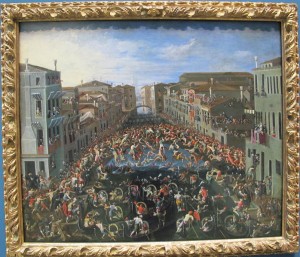
The boat races were yet another venue for the expression of these rivalries.
Some years ago, while traveling in Hong Kong and Guangdong,
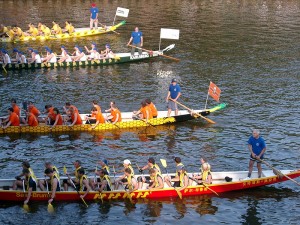
I heard about the ‘Dragon Boat’ races that are held throughout the region at the time of the Duanwu festival (which is usually in June).
Here too the teams are fielded by villages and communities, and the races are contested with great passion.
No doubt the resemblances between these races, and the vessels that contest them, are purely coincidental. Yet, I find it interesting that these areas have long histories of connection. Kerala’s connections with China are commemorated in both words and objects. One authoritative Malayalam dictionary[1] has three pages of words that are prefixed with cina and cini .
The entries number in dozens and include words for many kinds of plants, textiles, food items, flowers, spices, instruments, such as the telescope (Cina-k-kulal) and of course the famous fish nets of Cochin (cina-vala).
In Cochin harbour I’ve seen many boats that have reminded me of the Dragon Boats of China and the gondolas of Venice.
As for Venice, it was the birthplace and home of Marco Polo, perhaps the most famous traveler ever to visit China. To this day many objects from Guangdong are on display in the city’s palaces and homes.
For example this fine pair of
‘Nodding Head’ dolls
which were among the most popular souvenirs produced for foreign visitors in 18th and 19th century Guangzhou.
Of course, all of this could have come about even in the absence of ‘connected histories’ §. It is increasingly clear that people and places have communicated with each other in many different ways, not all of which involved direct contact.
Even bacteria ‘have elaborate chemical signaling systems that enable them to communicate within and between species.’ And bacteria, after all, are our ancestors.
[1] A Comprehensive Malayalam-Malayalam-English Dictionary on Historical and Philological Principles, ed. B.C.Balakrishnan, Univ of Kerala, Trivandrum, 1985. Vol V, pp: 462-468
§ This phrase refers to Sanjay Subrahmanyam’s brilliant book Explorations in Connected History.

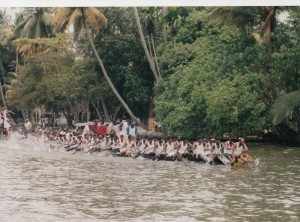
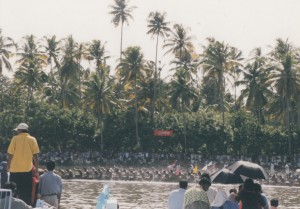
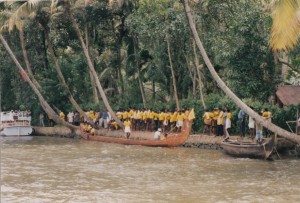
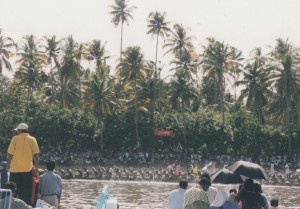
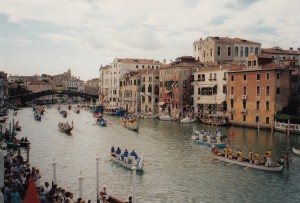
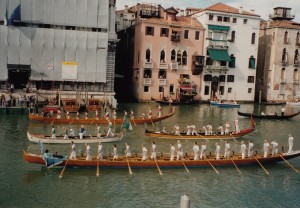
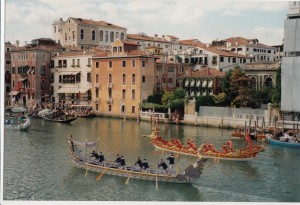
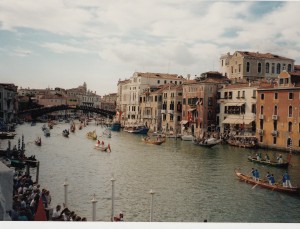
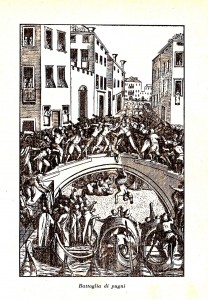
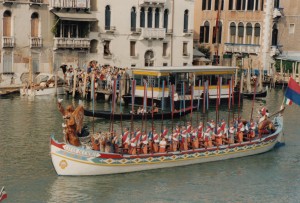
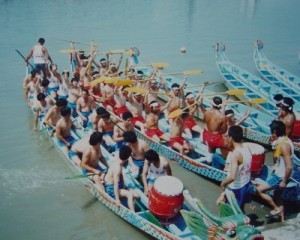
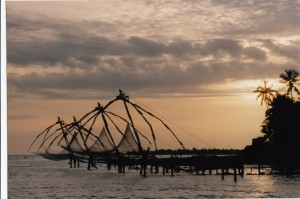
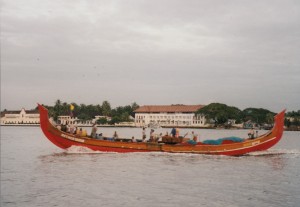
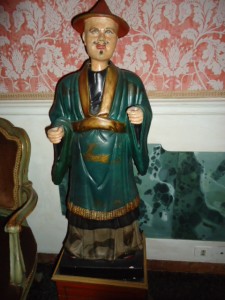
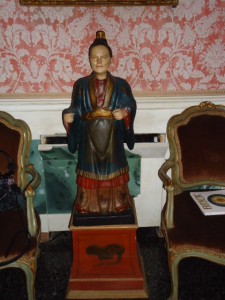
Sir,
it was fascinating to read not only this piece,but also your tantalising morsels of the historical connections of India with its neighbours.
Most of us who consider ourselves educated are woefully ignorant of our own history.
its time someone like you started to systemically disseminate our rich and fascinating cultural history.
Please don’t hide your light under the bushel any longer.
Regards
Anol Chatterji
Dear my favourite writer, after all am a dying fan of your books, i was wondered that you visited my state Kerala and done with the famous boat race! .. in a single stretch i read the piece and liked it for its comparative nature with the Venice and China ,, as i lived in Kochi around 2 years, cina net ncever has evoked wonder. but after reading the article, its sure, the cina net, when comes before me, will bring in me the very essence of the article.. thank you sir for touring our state, what if it might evoked you to embark upon another novel !oh god, thanks again for your enchanting writing style!!